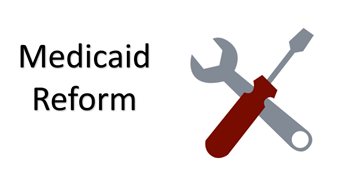MM Curator summary
Wisconsin has asked CMS to put all of the premium payments made by Medicaid members into an HSA regardless of whether they achieve healthy behavior requirements.
The article below has been highlighted and summarized by our research team. It is provided here for member convenience as part of our Curator service.
The Medicaid demonstration waiver, submitted to CMS in late December, seeks to leverage health savings accounts for childless Medicaid enrollees.
Source: Getty Images
January 21, 2021 – The Wisconsin Department of Health Services (DHS) has submitted an amendment to their section 1115 Medicaid demonstration waiver “BadgerCare Reform” for Centers for Medicare & Medicaid Services (CMS) approval to leverage a Medicaid health savings account (HSA) program for childless adults in the state.
Submitted on December 21, the amendment proposes that the full amount paid in premiums by individuals within the Medicaid/BadgerCare Plus program be deposited into a Medicaid HSA. Individuals could use then use the funds from their Medicaid HSA toward health expenses upon disenrollment from the BadgerCare Plus program.
This amendment would apply to enrollees aged 19 to 64 with incomes between 50-100 percent of the federal poverty line. Additionally, qualified members must not be pregnant or have dependent children under the age of 19 living in their home.
The federal public comment period will span from January 7, 2021 to February 6, 2021.
Under Wisconsin’s existing approved waiver, enrollees who fulfill healthy behavior incentives are charged lower premiums. However, this amendment would deposit additional funds to these enrollees’ HSAs so that regardless of whether an enrollee fulfills the healthy behavior incentives or not, the same amount of money would be deposited.
HSAs are considered an experimental approach in Medicaid programs. According to a 2018 Health Affairs study from Harvard T.H. Chan School of Public Health, there may be unintended consequences of an HSA program since these accounts are not commonly used. For instance, enrollees could be confused by the HSA program which may dissuade some people from enrolling.
“There’s been a lot of recent research showing that expanding Medicaid leads to improved access to care and better quality of care—which suggests that any expansion will be better for public health than not expanding. But our findings suggest that some of the benefits of expanding Medicaid may be at least partially compromised by some of the current innovations in use,” said Benjamin Sommers, associate professor of health policy and economics at Harvard T.H. Chan School and lead author of the study.
Under the Trump Administration, which prioritized increased state flexibility for Medicaid programs, some states have experimented with new approaches.
The researchers assessed views about new Medicaid policies approved by CMS in Ohio, Indiana, and Kansas through a telephone survey of 2,739 low-income adults. The survey gathered responses related to health savings accounts, financial well-being, access to care, experiences with the Affordable Care Act (ACA), work requirements, and private vs. public insurance coverage.
In 2015, Medicaid coverage was expanded in Indiana, but enrollees are required to pay premiums and contribute to HSAs, similar to what Wisconsin is proposing in their Medicaid demonstration waiver. On the other hand, Ohio expanded Medicaid coverage without premiums and with minimal cost-sharing.
The researchers found that cost-related barriers to care were more prevalent in Indiana, where enrollees were required to contribute to HSAs.
According to the survey respondents from Indiana, the health savings accounts caused confusion. Nearly 40 percent of those interviewed said they had never heard of the required accounts, and only 36 percent made regular required payments. This means that two-thirds of beneficiaries were at risk of losing benefits or coverage.
“For both work requirements and health savings accounts, the policies may operate as intended for modest numbers of Medicaid beneficiaries who understand or react to the incentives. But there’s a real risk that even greater numbers of low-income adults will be adversely affected because they don’t understand the new policies, can’t afford them, or get tied up in administrative complexity. For these reasons, it’s critical that there be ongoing independent monitoring of these approaches,” Sommers said.
Clipped from: https://healthpayerintelligence.com/news/wi-submits-medicaid-demonstration-waiver-health-savings-account-program

